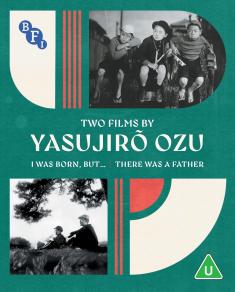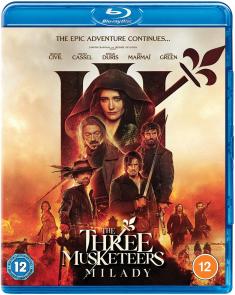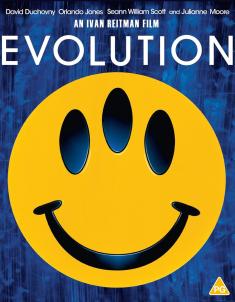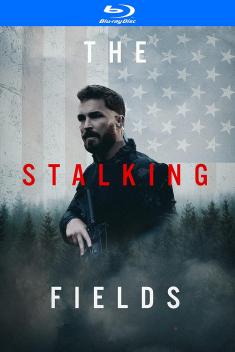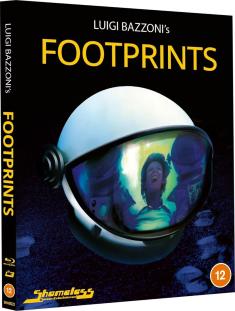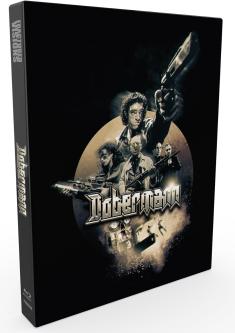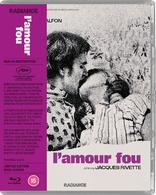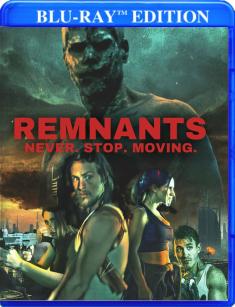The Searchers
Overview -As a Civil War veteran spends years searching for a young niece captured by Indians, his motivation becomes increasingly questionable.
Storyline: Our Reviewer's Take

I still remember much about my days at film school, but nothing more than the frequent, heated arguments that inevitably erupted during critical studies classes. Though all were vocal and passionate, by far one of the most memorable was when "Introduction to Film Genres" screened 'The Searchers,' John Ford's classic western, and his twelfth with star John Wayne. What was it that so riled up my classmates? Certainly not film's unmistakable craftsmanship and passion, nor the place it has rightfully earned as one of the most important and influential Westerns ever made. Rather, it was the film's very moral fiber that was on trial, and the charges of racism and glorification of violence that have plagued the picture in the fifty years since its release. Seriously -- by the end of the discussion, tempers had flared so high that I truly thought some chairs would be hurled and bones broken. I had never even heard of 'The Searchers' before that day, but I certainly never forgot it.
I will admit that I leaned towards the side of the film's detractors that day, and still do. I believe that cinema is more than just a technical exercise, and more than just a personal expression of its makers. It is a communal art form, one that can entertain, instruct, illuminate and yes, influence. Movies are not made in a vacuum, and they cut both ways -- as often as they can inspire us to embrace what is best about humanity and ourselves, they can also cater to our worst instincts by reinforcing harmful prejudices and stereotypes. So to critique a film solely on the basis of its technical merits, or how pure an expression it is of its makers, always seemed slightly irresponsible to me -- it's like saying you can film and exhibit the slaughtering of children for profit, and as long as you do it with style, suspense and flair, it's artistically valid.
Granted, that is an extreme example. But 'The Searchers' -- though notably less controversial than such truly incendiary films as 'The Birth of A Nation' and 'Triumph of the Will' -- still troubles me. What is the responsibility of the filmmaker to present his characters and milieu fairly and without malice. And just how should any moral transgressions on celluloid reflect on a movie's ultimate esteem in the cinematic canon?
To put it more simply, 'The Searchers' is a pretty racist film. It paints "Indians" as barbaric caricatures with little humanity or honor, and whose viciousness only serves to contrast the purity and innate goodness of the white man. Which would be more laughable if it wasn't for the film's seemingly unwavering and sincere belief that we, as a culture, had the right to arbitrarily exterminate the Native American people without remorse or just cause. Certainly, 'The Searchers' reflects the cultural attitudes and prevailing beliefs of its time, but still, is that really an excuse? Sure, I can laud 'Gone with the Wind' and 'A Birth of a Nation' as technical achievements, but I can't deny I feel awfully queasy watching them.
'The Searchers' is a pretty rough film, at least for 1956. It represented somewhat new territory for Wayne as well as Ford, one where its characters' violent actions were depicted with a more hardened realism and lack of sentimentality. It also pushed boundaries, depicting (if largely offscreen) then-shocking subject matter including rape, retribution and genocide. Yet at the same time, 'The Searchers' feels as sun-drenched and Norman Rockwell-esque as a Frank Capra comedy. It remains an unnerving contradiction -- Wayne, as Ethan Edwards, commits repugnant acts, but we are told his intentions are noble. He seems to be depicted by Ford as a hero in the traditional sense -- not an anti-hero. (Sorry, I think any such inferences on behalf of film historians are divorced from how the film was intended and regarded at the time.) Playing a Civil War vet, he will spends years searching for his young niece after she is captured (and eventually adopted) by a Native American tribe. Which is a fairly standard Western plot, but the lengths Edwards will go in his quest is what set 'The Searchers' apart from earlier films in the genre, as well as Ford and Wayne's previous efforts.
Unfortunately, for me, the film just does not go far enough in declaring its position on the ethics and morality of Edwards' and his actions. I would like to say the film was being intentionally ambiguous in how it depicts the character and the American ideals he represents, thus challenging our preconceptions and beliefs, but I have never found Ford to be that intuitive and intellectual of a filmmaker. His approach here for me is far too one-dimensional and unapologetic to be that subversive. Edwards seems as idealized as the glorious sunsets and American western iconography Ford frames his actions in front of. And for me, I just find that downright creepy and disturbing.
Yet 'The Searchers' remains a hugely influential film. Just take a look at the filmmakers that appear in this disc's supplements, or have been laudatory in their praise of the movie and its influence, and it is like a who's who of today's top auteurs -- Martin Scorsese, George Lucas, Steven Spielberg, Peter Bogdanovich and Curtis Hanson, to name but a few. I certainly can't help but marvel at the film's level of craftsmanship, and Ford's mastery of all aspects of cinema -- photography, lighting, locations, production design, performance, story and character. 'The Searchers' is also a landmark Western, a film that helped write the rule book for the genre. Indeed, we wouldn't have the revisionist westerns that largely righted the moral wrongs of 'The Searchers,' such as 'Dances with Wolves' and 'Unforgiven,' had the conventions they betrayed already been so etched into our collective consciousness. Ford's vision of the West was, in the decades that followed and for better or worse, truly iconic. Even if there is much in 'The Searchers' I find grossly unpleasant, it is an unquestionable landmark in American genre moviemaking. I just can't say I ever want to see the film again.
Video Review

Much has been made of the restoration created for the recent 50th Anniversary Edition DVD release of the film, which some reviewers complained suffered from arguable aesthetic choices. Given that my knowledge of the film's production history is limited, I will simply defer to the man who is perhaps today's current leading expert on film restoration, Robert A. Harris, who recently interviewed Ned Price, Vice President of Mastering at Warner Bros. Technical Operations, about the challenges the studio faced in properly restoring 'The Searchers.' (You can check out the full interview at The Digital Bits. While rather technical, it is a fascinating and worthwhile read.)
To summarize that interview, 'The Searchers' was shot using the long-defunct (if much beloved) VistaVision process, a vintage film process known for its high-resolution, Technicolor images. Alas, when it came time to restore the film for its recent anniversary, the original elements were found to be unusable. Without a viable negative, a new print had to be derived from "black and white separation masters," meaning considerable creative license had to be taken as to how to restore 'The Searchers.' Of course, given that John Ford has long since passed, and so have most of the film's creative personnel, it was up to the team at Warner to make educated decisions on every aspect of the presentation. Needless to say, not everyone agreed with the choices Warner made.
That said, I feel the same way about this Blu-ray version of 'The Searchers' as I did the HD DVD -- both look terrific (and as they are minted from the same master, they should). It certainly ranks up there with the finest vintage restorations Warner has produced for DVD -- and considering that lineup includes such glorious remasters as 'Citizen Kane,' 'Gone with the Wind,' 'The Wizard of Oz' and 'Singin' in the Rain,' that is high praise indeed. Presented in a 1.78:1 aspect ratio and 1080p/VC-1 video (and on a BD-50 dual-layer disc, no less), Warner has done a remarkable job in rescuing 'The Searchers,' and this Blu-ray version is currently the best-looking classic catalog title on the format by far. Quite frankly, this transfer looks cleaner than some recent releases with $100 million dollar production budgets -- there is just something breathtaking about seeing a fifty-year-old film that looks as smooth and clear as this.
Despite criticisms about changes Warner made to the film's color timing, I found the hues to be extraordinary -- lush, vivid, full-bodied but smooth and free of noise and bleeding. Really rock solid stuff. Fleshtones, too, are spot-on, with faces a perfect shade of orange that rival the film's blazing-hot landscapes. Blacks are also excellent, with no signs of fading and very few inconsistencies (sure, there are a couple of brief frames that suffer from a slight wavering or areas of inconsistency, but that's really nitpicking). Detail, too, is terrific, and this Blu-ray easily tops the standard DVD, even as good as it was. There are moments when John Ford's gorgeous framing is simply jaw-dropping -- the sense of depth and three-dimensionality to this image is a sight to behold. I can only hope that Warner gets around to issuing some of its other classics on Blu-ray soon, such as 'Singin' in the Rain' and 'Citizen Kane.' I really can't wait.
About the only negative I can add -- more of an observation, really -- is that this transfer does have a very high-contrast look. Whites appear a bit on the hot side -- no, there is no blooming or other such issues, but it does look more heightened and pumped-up than some of Warner's other restorations for DVD, specifically the slightly more film-like 'Citizen Kane' and 'Singin' in the Rain' (the latter of which I still hold up to be the best remaster I've ever seen on video, period). Again, this high-contrast look is likely totally intentional, so I can't fault this transfer. But I would be interested to hear how diehard fans of 'The Searchers' feel, especially those who know every frame of the film so intimately.
Audio Review
Unlike the transfer, there is not too much to say about the soundtrack to 'The Searchers.' For whatever reasons, the original audio source elements for the film were not available to mount a full-on restoration, so as with the HD DVD release, the Blu-ray can only do so much with dated materials and Warner presents the film in English Dolby Digital 1.0 mono only, though that is not a bad thing from a purist's perspective. In all honesty, most souped-up remasters of vintage titles tend to irk me, with their phony digital surround processing and re-recorded sounds that are jarring if you are at all familiar with the original film. Thankfully, that is not the case 'The Searchers' -- we simply get a nice, clean and accurate version of how the movie likely sounded when it was first released theatrically back in 1956.
Obviously, there is no surround channel information to speak of, so I can't say this is an enveloping experience -- all sound information emanates from the center channel only (although I switched my receiver to pump out the mono track in both the left and right front speakers, as I prefer to listen to mono tracks via two channels). Yet for a fifty-odd year-old film, 'The Searchers' sounds quite natural. Dynamic range is surprisingly solid, with a pleasing fullness to the midrange and little in the way of high-end distortion or tinniness. Granted, low bass can't hope to compare to a modern soundtrack, but it does benefit from an effective level of heft. I was also impressed by how real and distinct dialogue reproduction feels -- rarely does this mix sound processed or artificial, which is often a problem with remasters of older titles. Certainly, this soundtrack will not blow you away, but given the limitations of the source material, it is satisfying.
Special Features

With the 50th Anniversary Edition of 'The Searchers' having been released on standard-def DVD just a few months ago, the supplements Warner has ported over for this Blu-ray release are likely already familiar to the film's die-hard fans. But it is nonetheless a very strong set of extras, one both insightful and reverential towards the film. Indeed, this is that rare batch of supplements that really is required viewing for even casual admirers of 'The Searchers.' And kudos must go to Warner for holding off on 'The Searchers' on Blu-ray until they could utilize a BD-50, so not a single supplement is lost versus the HD DVD.
First up is an audio commentary with filmmaker and historian Peter Bogdanovich, who seems to have launched a second career contributing to DVD extras. Really, I continue to be amazed at his breadth and depth of film knowledge. You'd think that a full-length commentary by a guy who really had nothing to do with the movie would be boring, but Bogdanovich is a very articulate and passionate speaker, and with a dry wit that is always engaging. He fires off quite a wealth of information on the production yet never sounds like he is reading off the page, and also makes a strong case for the film's high regard in the pantheon of cinema Westerns. Though I don't think this commentary should be the first extra you watch on this Blu-ray, it is worth a listen if you still crave more info after watching all the video-based features that follow.
Commentary aside, the heart of the extras for me is a trio of documentaries, one new, one recent, and the other vintage. Each runs about a half an hour, and combined they offer a myriad of perspectives on the film's production, its legacy and the talent of its maker, John Ford.
Your first stop should probably be 1998's "A Turning of the Earth: John Ford, John Wayne and 'The Searchers.'" Taking a bit more of an artful approach for a documentary, this one combines rare on-location footage with sparse interviews and narration by longtime Ford fan and famous Hollywood anarchist John Milius. Unfortunately, I'm not much of a Milius supporter, and some of his lines in this doc are real howlers. "If you're an Indian, you want to be like Scar," he says at one point. "You want to blow that horn and slaughter white settlers relentlessly. Take many scalps and have many young wives." Is he kidding!? Does he or the makers of this documentary really think that Native Americans looked at the horrendous stereotypes on display in 'The Searchers' and wanted to emulate them? Other that such queasy lapses in judgment, "A Turning of the Earth" offers a sturdy introduction to the film, its themes and its importance to cinema.
Even more revelatory -- and also more balanced -- is "'The Searchers': An Appreciation." Certainly, any film that can attract filmmakers such as Martin Scorsese, Curtis Hanson and Milius to contribute new interviews is not one to be taken lightly. All remember the profound impact that early viewings of the film had on them (Scorsese claims to have seen the film at least a dozen times as a kid), as well as how Ford's ability to create both personal and commercial films has influenced their own filmmaking. Scorsese and in particular Hanson also don't shy away from the more problematic racial issues that continue to dog 'The Searchers,' and both make intelligent, well-thought out arguments in defense of Ford and his approach. All in all, this is a very strong, worthwhile doc. (As a side note, it is also nice to see a doc shot and presented in 1080i video. It really does improve the experience, and I look forward to the day when all new supplemental content is produced exclusively in HD.)
Rounding out the video-based extras are four vintage "Behind the Camera" segments from the "Warner Brothers Presents" TV series. Though not really a documentary per se, these nostalgic B&W pieces are really cool finds. Especially poignant is the segment on the late Natalie Wood, and fascinating is the bit on "rising star" Jeffrey Hunter, which shows just how unpredictable the Hollywood PR machine can be (Hunter never quite achieved the matinee status planned for him). Warner has also done a very fine job restoring these segments, as all look mighty fine.
Wrapping up the package is a short introduction to the film by John Wayne's son (he still can't act), as well as a vintage theatrical trailer that is fascinating, if only to see how vastly different films were marketed back in 1956.
I'm not nearly as sold on 'The Searchers' as is its devoted cult following, but I do appreciate its historical importance and the obvious craftsmanship and passion that went into its making. Despite my reservations toward the film itself, Warner Home Video has done the film proud with what is perhaps the best classic catalog release yet on Blu-ray. Like it's HD DVD counterpart, a truly magnificent transfer and a soundtrack that remains faithful to the original source material are capped off by a fabulous package of supplements. If you are at all a fan of 'The Searchers,' this one is an absolute must-own.




